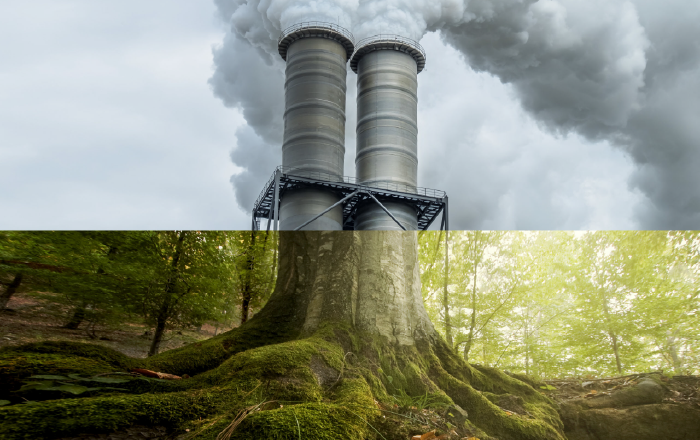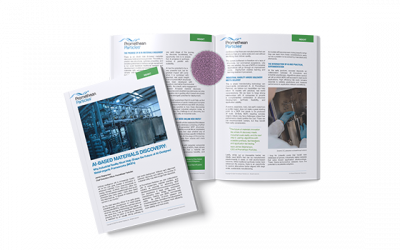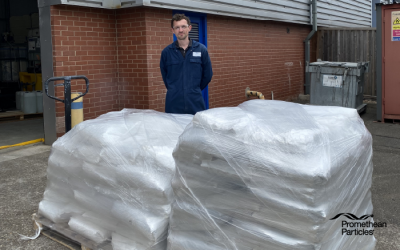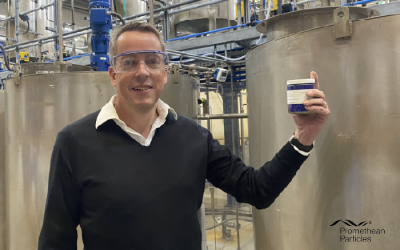Promethean Particles, a leading global provider of industrial scale, cost-effective nanomaterials, has announced its participation in a new collaboration. Along with the University of Nottingham and Drax power station, they aim to demonstrate the potential of metal-organic frameworks (MOFs) as a viable industrial carbon capture technology.
As part of a suite of projects funded by the UK Carbon Capture and Storage Research Centre (UKCCSRC), project PICASSO – PIlot-scale Carbon CApture using Solid SOrbents – aims to highlight the power of MOFs as a new technology to help the UK achieve its net zero greenhouse gas emissions targets.
“Conventional carbon capture technologies like amine scrubbers are limited in their overall effectiveness, sometimes requiring as much as 30% of the power station’s output just to regenerate the amine,” said Dr Selina Ambrose, Technical Manager at Promethean. “MOFs represent an exciting new frontier of materials technology for a variety of industrial applications.”
MOFs are a class of compounds that have extremely large surface areas and the ability to selectively adsorb a variety of materials, including carbon dioxide. They have long been the subject of academic development but have struggled to make a large-scale industrial impact due to complexity and expense of manufacture.
“A single thumbnail-sized pellet of one of our MOFs has the same surface area as two tennis courts,” explained Ambrose. “Now imagine tens, if not hundreds, of thousands of these pellets packed into an adsorption column and you can start to understand why we are excited about the potential of these materials.”
Promethean operates the world’s largest multi-material nanomaterial manufacturing plant in Nottingham, UK. Through its patented continuous flow hydrothermal synthesis process, it believes it has unparalleled manufacturing scale and cost-effectiveness for the production of MOFs. Promethean will be providing the MOFs to be incorporated into a carbon capture system designed by the University of Nottingham. This will then be installed directly onto a flue gas stream from Drax where the carbon uptake will be monitored and measured.
“We have seen a significant increase in customer interest for our MOFs as an alternative technology for carbon capture,” said James Stephenson, Chief Executive Officer at Promethean Particles. “However, our customers consistently have two main concerns when it comes to MOFs; that there is insufficient manufacturing scale to meet industrial requirements and that MOFs will have unviable costs at this scale. Not only do we have the capacity, but our continuous process also means we can shatter the perceptions regarding the cost of MOFs. This collaboration with Drax and the University of Nottingham will be a great opportunity to show real-world utility for these incredible materials.”
“Our goal in this collaboration is to demonstrate that MOFs are a high-performing, cost-effective, and viable technology for carbon capture at the scale needed to make an impactful contribution to tackling the decarbonisation challenge,” continued Stephenson. “Promethean will be contributing more than 50kg of MOF material to this poroject. This should go a long way to dispelling the myth that MOFs are prohibitively expensive.”




